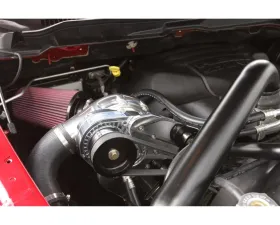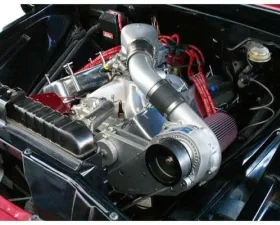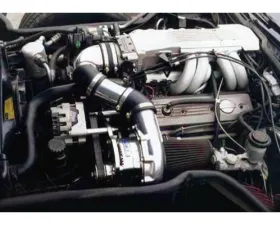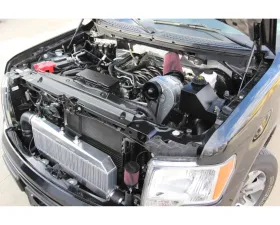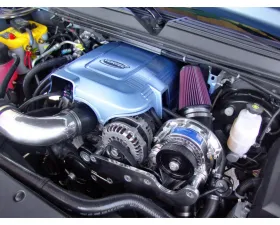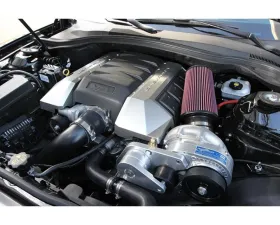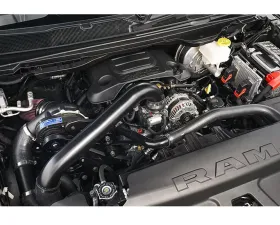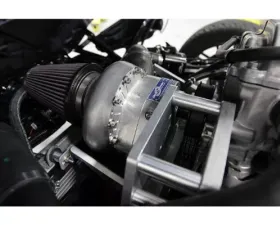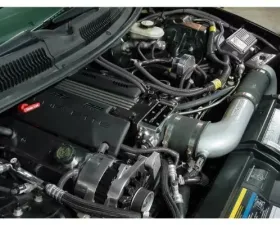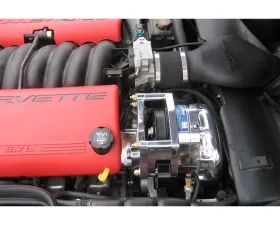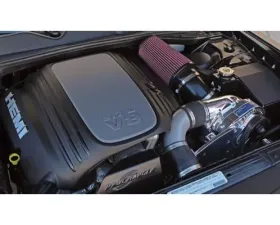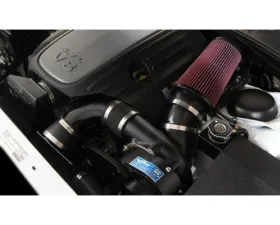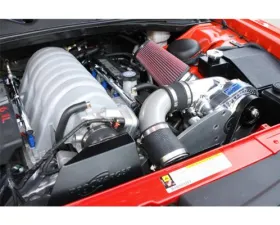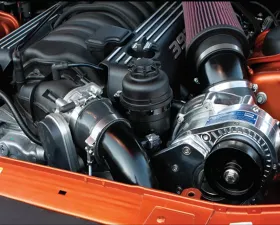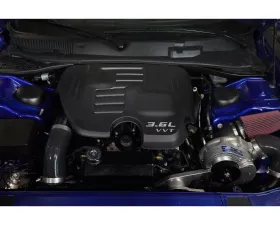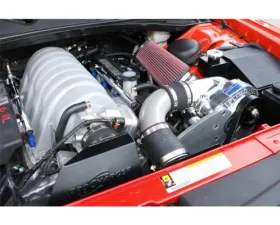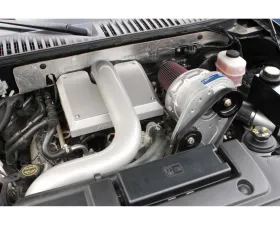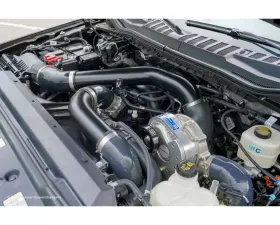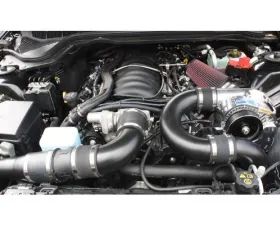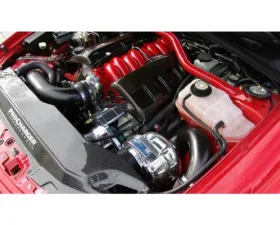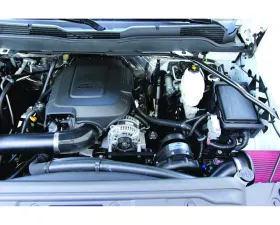SuperChargers
SuperChargers - Enhance Your Vehicle's Performance with High-Quality Supercharger Kits from Vivid Racing. Discover top-of-the-line supercharger kits at Vivid Racing, designed to boost your vehicle's horsepower and torque. Our extensive selection features premium brands and components, ensuring optimal performance and reliability. Upgrade your ride today and experience the thrill of increased power and acceleration.
ProCharger High Output Intercooled System w/ P-1SC-1 Ram Hemi 5.7L 2009-2010
ProCharger High Output Intercooled System w/ P600B GM TBI Truck | SUV 5.7 1988-1995
ProCharger High Output Intercooled System w/ P600B GM TBI Truck | SUV 7.4 1988-1995
ProCharger High Output Intercooled System w/ P600B Satin Finish Chevrolet Corvette C4 L98 1985-1991
ProCharger High Output Intercooled System w/ i-1 Ford F-150 | SVT Raptor 6.2 4V 2010-2014
ProCharger High Output Intercooled System w/ i-1 GM Truck | GM SUV 2007-2014
ProCharger High Output Intercooled System w/Airbox and P-1SC-1 Chevrolet Camaro SS 2010-2015
ProCharger High Output Intercooled System w/D-1SC Ram 1500 5.7 2019-2022
ProCharger High Output Intercooled System with CS-1 Polaris Slingshot 2015-2019
ProCharger High Output Intercooled System with P-1SC Chevrolet Camaro | Pontiac Firebird LT1 1993-1997
ProCharger High Output Intercooled System with P-1SC-1 Chevrolet Corvette C5 Z06 LS6 2001-2004
ProCharger High Output Intercooled System with P-1SC-1 Dodge Challenger Hemi 5.7 2011-2014
ProCharger High Output Intercooled System with P-1SC-1 Dodge Challenger Hemi R/T 5.7L 2008-2010
ProCharger High Output Intercooled System with P-1SC-1 Dodge Challenger Hemi SRT8 6.1L 2008-2010
ProCharger High Output Intercooled System with P-1SC-1 Dodge Challenger SRT-8 392 6.4L HEMI 2011-2014
ProCharger High Output Intercooled System with P-1SC-1 Dodge Challenger V6 3.6 2015-2022
ProCharger High Output Intercooled System with P-1SC-1 Dodge Charger Hemi SRT8 6.1L 2006-2010
ProCharger High Output Intercooled System with P-1SC-1 Ford F-150 | Expedition 5.4 3V 2004-2010
ProCharger High Output Intercooled System with P-1SC-1 Ford F-250 | 350 Super Duty 7.3 2020-2022
ProCharger High Output Intercooled System with P-1SC-1 Pontiac G8 GT 2008-2009
ProCharger High Output Intercooled System with P-1SC-1 Pontiac GTO LS1 2004
ProCharger High Output Intercooled System with P-1SC-1 Pontiac GTO LS2 2005-2006
ProCharger High Output Intercooled System with i-1 Ford F-150 5.0 4V 2011-2014
ProCharger High Output Intercooled Systems w/ P-1SC-1 GM Truck 2500 2015-2019

What is a Supercharger and What does it Do?
The amount of power an internal-combustion engine can produce depends primarily on how much fuel it can burn and how quickly and efficiently it converts that heat to mechanical force. But fuel requires oxygen to combust, so an engine's maximum output depends largely on how much air it can take in to burn that fuel.
Hence the concept of forcing-feeding an engine more air than it would normally ingest so that it can burn more fuel and produce more power. This additional intake air can be supplied by either a turbocharger or a supercharger. Both are air compressors, but they operate and perform very differently. But in this section, we are going to talk extensively about the supercharger.
A supercharger is a term for an air compressor that increases air density entering the combustion chamber with which to burn fuel. The earliest superchargers were all driven by power taken from the crankshaft, typically by gear, belt, or chain – like those in early racing Bentleys in the 1920s that went head to head with Mercedes-Benz and Alfa Romeo.
Superchargers run off the power of the engine and, unlike turbochargers, they experience next to no lag in their power delivery. The power surge from superchargers can be felt instantly and can be accessed across the entire RPM range. Whilst different types of superchargers deliver their power in different ways, this generally holds true for them all.
More than the power it adds, the mechanical whine of a supercharges is perhaps one of the most addicting sounds that a car can make. It is certainly more addictive than the ‘whooshing’ sound created by blow-off valves in turbocharged cars. The noise can be all the justification you need to install one. But which one to install? Now, we discuss the different types of superchargers.
Roots Type Supercharger
The Roots style supercharger has been around for a very long time, and was first used as an air pump for mine ventilation. The Roots blower was used for the old 2-stroke Detroit Diesels as an induction system. When anyone says they've got an 8-71 Roots blower on their car, the Roots blower was originally built for 8-71 Detroit diesel models.
The roots type is the original' supercharger. It is a design that has been around since about 1860, are essentially working as air accelerators, where they force air into the intake manifold at a ferocious rate. Plus, the flaps in the intake were fun to watch. A very good example of this is the one installed on Dodge Chargers in the Fast and Furious franchise movies.
The drawback of a Roots-type supercharger is that the hotter it becomes, the less power your engine starts producing. This happens as the RPMs rise and the pressure rises, the supercharger's power output decreases causing a power drop off at higher revs.
Twin Screw Supercharger
This supercharger acts as a compressor and provides consistent power from idle speed to redline. The advantage of a twin-screw supercharger is that even at low revs you get the maximum output, so there's no power drop down through the rev range. This is partially because they do not run as hot as the Roots-type supercharger.However, these are complex mechanisms to deal with. Configurations supporting a twin-screw supercharger need to be strongly engineered with no scope for error.
The best examples that have this type of supercharger is the Dodge Challenger Hellcat, Chevrolet Camaro ZL1, Shelby GT500, and C7 Corvette Z06.
Centrifugal Supercharger
While still generating its power from engine speed, a centrifugal supercharger operates as an air compressor, so while they still provide boost at low RPMs, there’s not as much. These superchargers can be closely linked to the way a turbo works in that boost and power are increased as engine speed increases.
Unlike a turbocharger, you won’t experience any lag with a centrifugal supercharger. But like a turbocharger, you will feel boost piling as the revs rise.
Also, quite notably, centrifugal superchargers produce one of the most addicting whines that was earlier mentioned. But if you ar not a fan of it, there are helical gears available –like those from Procharger – to eliminate the whine, effectively making your car a sleeper on the street or on the track.
Don’t know what’s best for your car? We can help you! Just give one of our world-class professionals a call at 1-480-966-3040.

.jpeg?q=90&p=thumb&w=200&h=200)
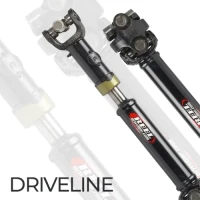
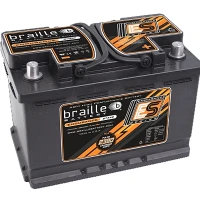

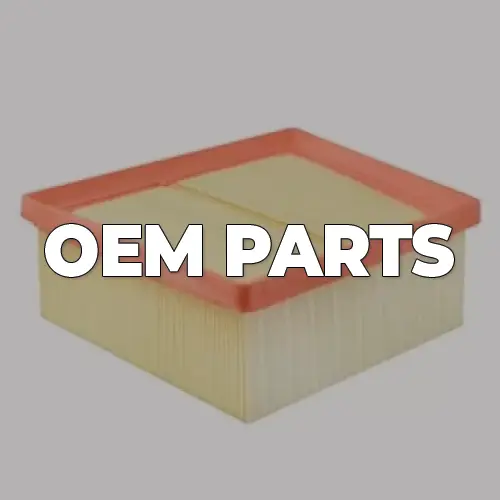
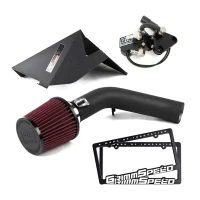
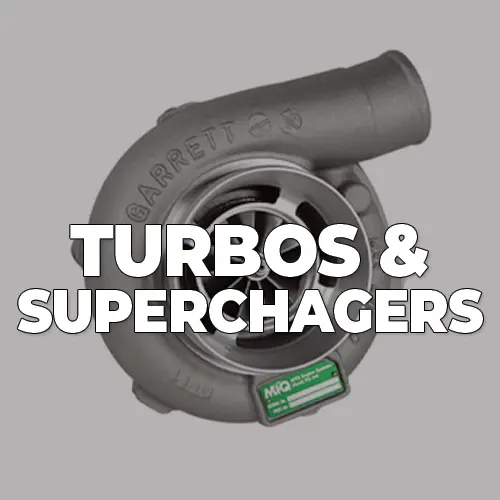
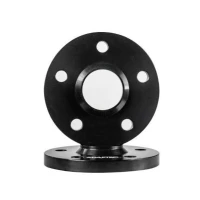
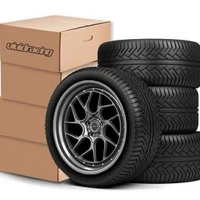
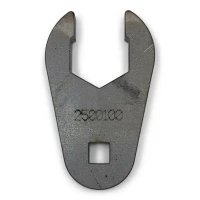
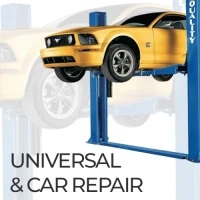
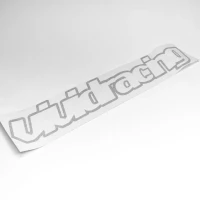
.jpeg?q=90&p=thumb&w=40&h=40) Brakes
Brakes  Driveline
Driveline  Electronics
Electronics  Handlebars & Controls
Handlebars & Controls  Package Deals
Package Deals  Wheel Accessories
Wheel Accessories  Wheels by Vehicle
Wheels by Vehicle  Tools and Maintenance
Tools and Maintenance  Universal & Repair
Universal & Repair  Vivid Racing Gear
Vivid Racing Gear 